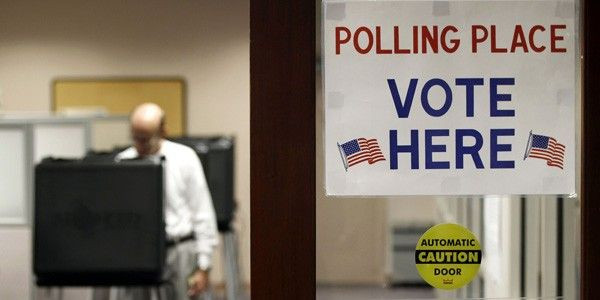With Election Weeks Away, Pennsylvania Voter ID Falls

A Pennsylvania judge suspended on Tuesday a new law requiring voters to present photo identification, a decision that will reverberate through the presidential election in a crucial swing state.
Commonwealth Court Judge Robert Simpson's decision ensures that the controversial law will not be in effect on Election Day, handing a victory to opponents who contended that the law was likely to suppress voter turnout among groups that are less likely to have a government-sanctioned photo ID.
People lacking a voter ID are disproportionately likely to be low-income, young or minorities, groups that tend to lean Democratic. That fueled accusations, in Pennsylvania and elsewhere, that new laws requiring a photo ID, almost all of them passed by Republican-controlled legislatures, are partisan maneuvers.
The Pennsylvania case had already reached the state's Supreme Court, which sent the case back down to the Commonwealth Court with instructions to examine the law for evidence that voters would be disenfranchised. If that risk was sufficiently high, the Supreme Court said, the law must be struck down.
Judge Simpson had already signaled he was leaning toward blocking the law, and on Tuesday he did so. The case could still be appealed to the state Supreme Court, but it may be too late to reverse Judge Simpson's decision before the presidential election.
Previously, Pennsylvania residents had been able to cast ballots if they presented non-photo forms of identification such as a utility bill. The new law tightened the requirements in what supporters called a safeguard against voter fraud.
But critics said the law made it prohibitively difficult for voters to obtain the necessary photo ID, citing cost, long lines and irregular hours at driver's license centers. Pennsylvania sought to allay those concerns by relaxing the requirements for obtaining a photo ID.
Battles over new voting requirements have flared up across the country, in many cases leading the Department of Justice to intervene and examine new laws under the auspices of the Voting Rights Act. Pennsylvania became a flash point because of its role as a battleground state and because the voter ID law was widely seen as one of the nation's toughest.
A leading Republican state lawmaker from Pennsylvania, Representative Mike Turzai, inflamed the conflict earlier this year, when he told supporters that the Pennsylvania law "is going to allow Governor Romney to win the state of Pennsylvania," for many affirming suspicions about partisan motives behind the law.
© Copyright IBTimes 2024. All rights reserved.




















